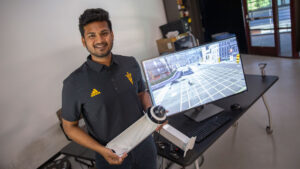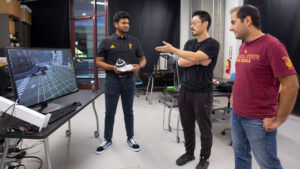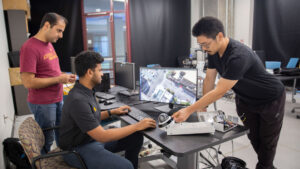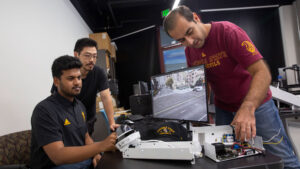Manthan Chelenahalli Satish
Robotics and autonomous systems
Hometown: Mysore, Karnataka, India
Graduation date: Fall 2022
MORE | Fall 2022
Vehicle Speed Estimation from 3D Object Detection for Surveillance Cameras
One of the key components of an intelligent transportation system is the ability to detect and track vehicles from traffic surveillance cameras. This research project showcases a monocular 3D object detection system that is trained on a custom dataset, KITTI-Carla, which comprises synthetic 3D data collected from the view of a traffic camera from the Carla Simulation in the format of the well-known KITTI dataset. This method is more robust than 2D object detection because of the perspective transformation involved, thus yielding better speed estimation. The system will be tested on the BronoCompSpeed Dataset and deployed on the chipset of ARGOS vision’s camera stack which will calculate the speed of vehicles at traffic intersections in real time. The results would compare the accuracy and computational efficiency of the method proposed against already existing methods.
Mentor: Yezhou Yang
Featured project | Fall 2022
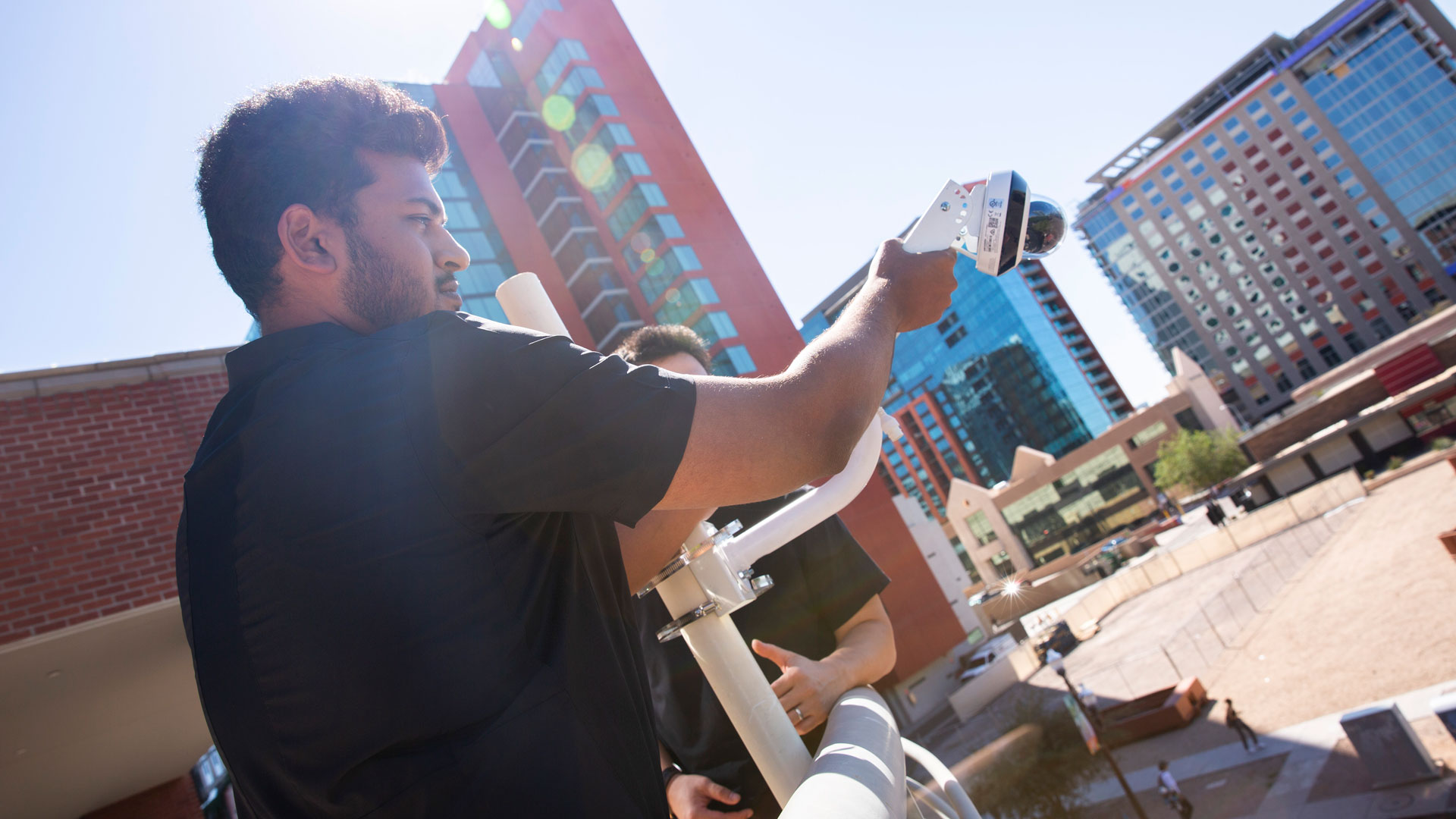
Robotics and autonomous systems graduate student Manthan Chelenahalli Satish is conducting research in the MORE program to use traffic cameras to estimate vehicle speed in a 3D perspective for increased accuracy when analyzing traffic patterns. He is working with Yezhou “YZ” Yang, an associate professor of computer science and engineering, whose research expertise is in computer vision, natural language processing and artificial intelligence reasoning for the purpose of robotic visual learning.
What made you want to get involved in MORE and the project you’re working on?
I chose to get involved in this program because I wanted to learn about engineering research and develop important research skills. I also wanted to explore potential career paths and learn about the field of computer vision.
I chose my research project because I was interested in the topic of object detection. Also, Dr. Yezhou Yang is one of the best mentors you could work with and learn from.
Have you had a particular “aha!” moment during your research?
I had an “aha!” moment when I realized I could tackle the problem of 3D object detection from traffic cameras by training a model from simulation data obtained from CARLA (an open-source autonomous driving simulator for researchers). This was never attempted before and will be a unique method I am proud of.
Have there been any surprises in your research?
I have been surprised by how much I have learned about computer vision and how much I have enjoyed working on my research project. I have also been surprised by the amount of support and guidance I have received from my faculty mentor.
How will your engineering research project impact the world?
It will enable data processing using edge computing for traffic systems, making computing faster and more efficient.
How do you see this experience helping with your career?
This experience has helped me to understand the research process and to develop important research skills. I have also had the opportunity to learn about the field of traffic autonomy and to explore potential career paths.
What is the best advice you’ve gotten from Associate Professor Yezhou Yang?
My faculty mentor has advised me to be patient and to take the time to learn as much as possible about my research topic. He has encouraged me to ask questions and to seek out resources that can help me to better understand my research. Also, he has advised me to be persistent and to never give up on my research goals.
Why should other students get involved in MORE?
It provides an opportunity to learn about research and to develop important research skills. It is also a great way to interact with the highly knowledgeable ASU professors and hone your skills for your future.
I am thankful to MORE as it is giving me the opportunity to explore my favorite research areas with top experts in the field.
